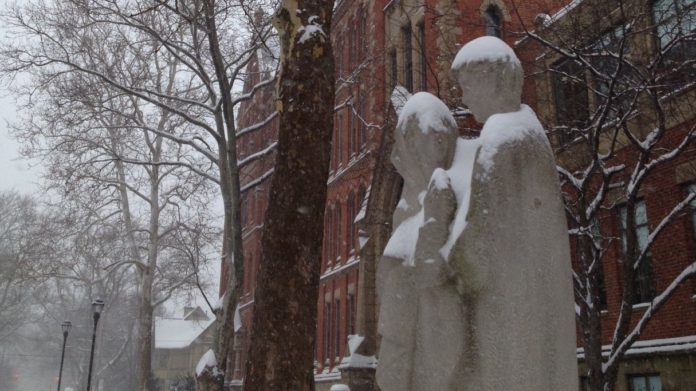By Darien Kulchytsky ‘21
Today, more than 2 billion people from 160 different countries consider Christmas as the most important holiday of the year. As we prepare for Christmas and the excuse for excessive gift-giving, and a respite from everyday life, it is no wonder Christmas is so popular. But it is important to note that Christmas was not always well liked. In fact, life without Christmas cheer and Santa Claus existed even during the spread of Catholicism during the 17th and 18th centuries.
Especially notorious for their hatred ofChristmas and Catholicism were thePuritans. Originally founded in response toKing Henry VIII’s formation of the AnglicanChurch, Puritans were discontent with the lack of changes to the Church of England. According to History.com, the Church “retained much of the liturgy and ritual ofRoman Catholicism and seemed, to many dissenters, to be insufficiently reformed.” Therefore, the Puritans began to believe that the Church of England “needed to be purified of the influence of the Catholic religious faith,” according to college professor Mary Deering.
With several unsuccessful attempts to reform the Anglican Church in Europe, the Puritans looked west. The New World offered a chance to found a fully Puritan nation. As a result, “several wealthy Puritans formed the Massachusetts Bay Company and pooled their resources to move a group of the Puritan faithful to the New World” (Deering). The first group of Puritans established an outpost, called Massachusetts Bay, led by John Winthrop, creating a “city upon a hill.” As the colony grew, it attracted more than 9,000 immigrants between 1630and 1643, leading to the creation of a school system as well as a government.
In the midst of the establishment of Massachusetts Bay, a great cloud of uncertainty descended upon the colonists. On May 11,1659, Christmas was banned in the Puritan colony “for preventing disorders arising in several places within this jurisdiction.” Basically banning Christmas due to the disorderly conduct of the colonists during the season. According to the Massachusetts Bay legislature, Christmas was celebrated “to the great dishonor of God & offense of others.” As a result, the violation of this law would result in a five shilling penalty, an amount worth up to $100 in today’s currency, according to Dan Lewis, author of Now I Know.
Oddly enough, a similar occurrence took place in England during the 1650s. Anti-Catholic fervor championed by leaders such as Philip Stubbs convinced the legislature to make Christmas a contemplative time, far from joyful. Therefore, on January 1645, “Parliament produced a new Directory for Public Worship that made clear that festival days, including Christmas, were not to be celebrated but spent in respectful contemplation” (Historic England). In both instances, Christmas ceased to exist, but nevertheless, much to the unhappiness of the Puritans, Christmas was made legal again. In Massachusetts Bay, the law remained for 22 years, until the the reign of the Dominion of New England—England’s attempt to grasp the colonies into its own hands after years of “salutary neglect.” In England, pro-Christmas riots broke out as soon as the law had been made legal. Eventually, Christmas was made legal once again in both locations.
So the next time you celebrate Christmas, think of what life would be like without a Christmas and be thankful that celebrating Christmas in America does not lead to certain arrest!






